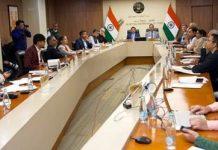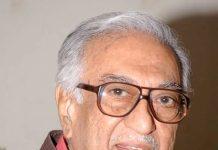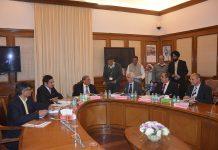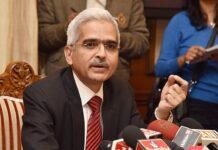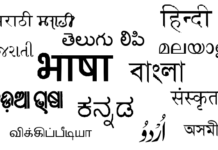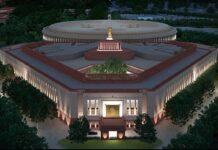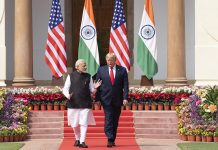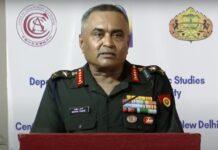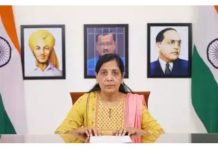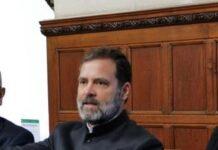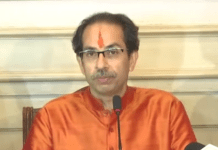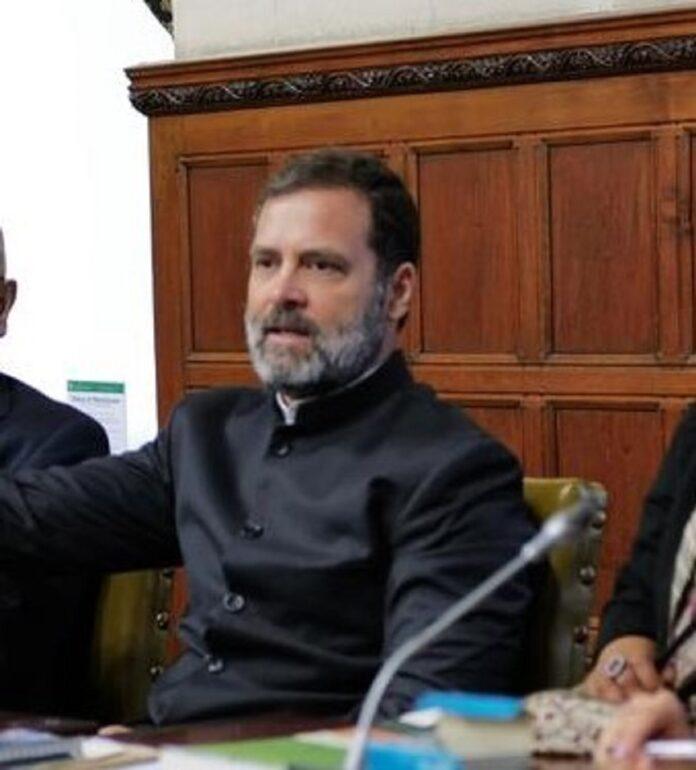‘’The English have taught us that we were not one nation before and that it will require centuries before we become one nation. This is without foundation. We were one nation before they came to India. One thought inspired us. Our mode of life was the same. It was because we were one nation that they were able to establish one kingdom. Subsequently they divided us.
Because we were one nation we had no differences, but it is submitted that our leading men travelled throughout India either on foot or in bullock-carts. They learned one another’s languages and there was no aloofness between them. What do you think could have been the intention of those farseeing ancestors of ours who established Setubandha (Rameshwar) in the South, Jagannath in the East and Hardwar in the North as places of pilgrimage? You will admit they were no fools. They knew that worship of God could have been performed just as well at home. They taught us that those whose hearts were aglow with righteousness had the Ganges in their own homes. But they saw that India was one undivided land so made by nature. They, therefore, argued that it must be one nation. Arguing thus, they established holy places in various parts of India, and fired the people with an idea of nationality in a manner unknown in other parts of the world’’. – Mahatma Gandhi, pp 42-43 Hind Swaraj.
Rahul Gandhi’s speeches in the United Kingdom are currently raising eyebrows among his constituent voters in the home turf. Ignoring political advocacy, I heard many people saying that there was no need to internationalise domestic, home election matters and to say or do things on foreign soils that tarnish India’s image and reputation. Markets and investments are heavily influenced by perception hence image and reputation of a country is extremely important. But people I spoke to sounded as if their nationalistic pride and patriotic sentiments were hurt by the utterances of Rahul Gandhi on overseas platforms suggesting that a typical Indian mind is sensitive to internationalisation of domestic issues outside home. A good example is how Asaduddin Owaisi’s statement in Pakistan was well received by the people in India.
In electoral politics, no politician would ever afford offending sentiments of his voters. Is Rahul Gandhi naïve not to understand this? What he is up to? Is he secretly an internationalist? What cause is most dear to him? What moves him and why?
In the parliament and in outside interactions, Rahul Gandhi has explained his idea of India several times as a “union of states“, an arrangement arrived at as an outcome of continuous negotiations. According to him, India is NOT a nation but a union of many nations like EU. It is RSS, according to him, that views India as a geographical entity (and as a nation).
Ask a soldier for his idea of India and he will say if India is not a geographical entity, then what invisible entity we are protecting at the border and making ultimate sacrifices for? Emotional attachment and sense of belonging to a territory is found even in many animals, for example, it is common occurrence to see dogs barking and fighting an intruding dog to protect their territory. It would not be exaggeration to say that entire history and the present world politics is largely about territory and imperialism of ‘ideology’.
Dogs’ and chimps’ territorial behaviour evolve in humans and take the form of “love for motherland”. In Indian society, the idea of motherland is among the most valued constructs. This is best expressed in the idea of जननी जन्मभूमिश्च स्वर्गादपि गरीयसी (i.e., Mother and motherland are superior even to heaven). This also happens to be the national moto of Nepal.
A typical Indian child inculcates and imbibes the love and respect for the motherland by way of primary socialisation through interactions in immediate family with parents, in schools with teachers and peers, books, patriotic songs and events like national festivals, cinema and sports etc. In school texts, we proudly read stories of great war heroes like Abdul Hamid, Nirmaljit Sekhon, Albert Ekka, Brig Usman etc or Rana Pratap and so on who sacrificed their lives defending and protecting their motherland. The National festival celebrations in school and communities on Independence days, Republic days and Gandhi Jayanti fills us with nationalistic pride and patriotism. We grow up with the ethos of unity in diversity and stories of glories of Indian history and civilisation and feel very proud of India. This is how factors of primary socialisation shape our national identity and instil affection and dedication to the motherland. ‘I’ and ‘mine’ are the social constructs. To an average person, India means the vast motherland of billion diverse people, all connected with the common emotional thread of Indian-ism or nationalism; it means the oldest civilisation in the world, the land of Gautam Buddha and Mahatma Gandhi.
However, unlike an average Indian, Rahul Gandhi’s primary socialisation was different. From his mother, he would not have imbibed social values, beliefs and ideas of the motherland in the same way as any typical Indian child does. Usually, mothers have most significant influence on development of beliefs and personality in children. His mother had grown up in Europe when the idea of Union of Nations had nearly materialised. It is natural that Rahul Gandhi imbibed more of “European values and idea of EU” from his mother than “Indian values and idea of India as motherland”. Also, the school education, the second most important factor of primary socialisation for Rahul Gandhi was very different. Due to security reasons, he could not attend regular school and could not be influenced by the teachers and peers in the same way as an average Indian.
Mothers and school environment always have greatest impact on primary socialisation of children, they usually inculcate and shape norms, social values, aspirations, faiths, beliefs and worldviews including approach and attitudes towards one’s country. Possibly, only important source of ideas and value system for him was his mother who had spent her childhood and early adult days in Europe. So, it is more likely that he acquired the unionist idea of Europe, norms and value system of Europe through his mother. No wonder, Rahul Gandhi’s values and the idea of ‘his’ country is different from a typical Indian. Based on the cultural ethos, his outlook is more like that of a European citizen. Hypothetically speaking, if Rahul Gandhi’s mother were a daughter of Indian Army soldier and if he had studied in an Indian Military school as a regular student, probably, he would not have been speaking in the way that has become characteristics of him now.
Primary socialisation is the most powerful tool to install software of ideology and doctrines in the minds of children. Religion and nationalism instilled this way are self-evident truths beyond reasoning for the beholder which rule the world and form the core of world politics. Any disregard to this fountainhead means insufficient understanding and inappropriate management.
It is in this context, one should look at Rahul Gandhi’s idea of India as a voluntary union of states just like European Union. For him, like EU, India too is not one nation but a contractual arrangement between states arrived after negotiations; for him, the Union is subject to outcome of continuous negotiations. Naturally such a union of states can be undone just the way Britain exited from the EU recently. And this is where Rahul Gandhi’s idea becomes interesting to the ‘groups’ supporting ‘’BREXITing from Union of India’’.
Rahul Gandhi may not mean any ill will against India. This is just how his mind operates because of the frame of views or software installed in his mind through primary socialisation, to give an analogy from science. This also explains why his cousin Varun Gandhi’s idea of India is not the same as Rahul Gandhi’s though both come from the same lineage but differ in parenting and early schooling.
Free will does not seem to be so free; it is free only within its own software and operating system.
Geo-political nation-states are reality, there is no way to escape this in the current climate. Idea of nation cannot be given up for internationalism based on political or religious ideology. Ideally, nation-states should wither only for internationalism based on universal human values which remain a very distant dream.
Rahul Gandhi, unlike typical politicians, speaks his mind honestly without bothering much about consequences in electoral politics. He is giving voice to sections holding similar view on India; or alternatively, expression of his ideas is well thought out strategy to attract those with similar views for political mileage. In that case, his townhall meetings, after his Bharat Yatra, at his alma mater Cambridge and at Institute of International Affairs (Chatham House) in London were gathering storms of the coming general election.
***
***



